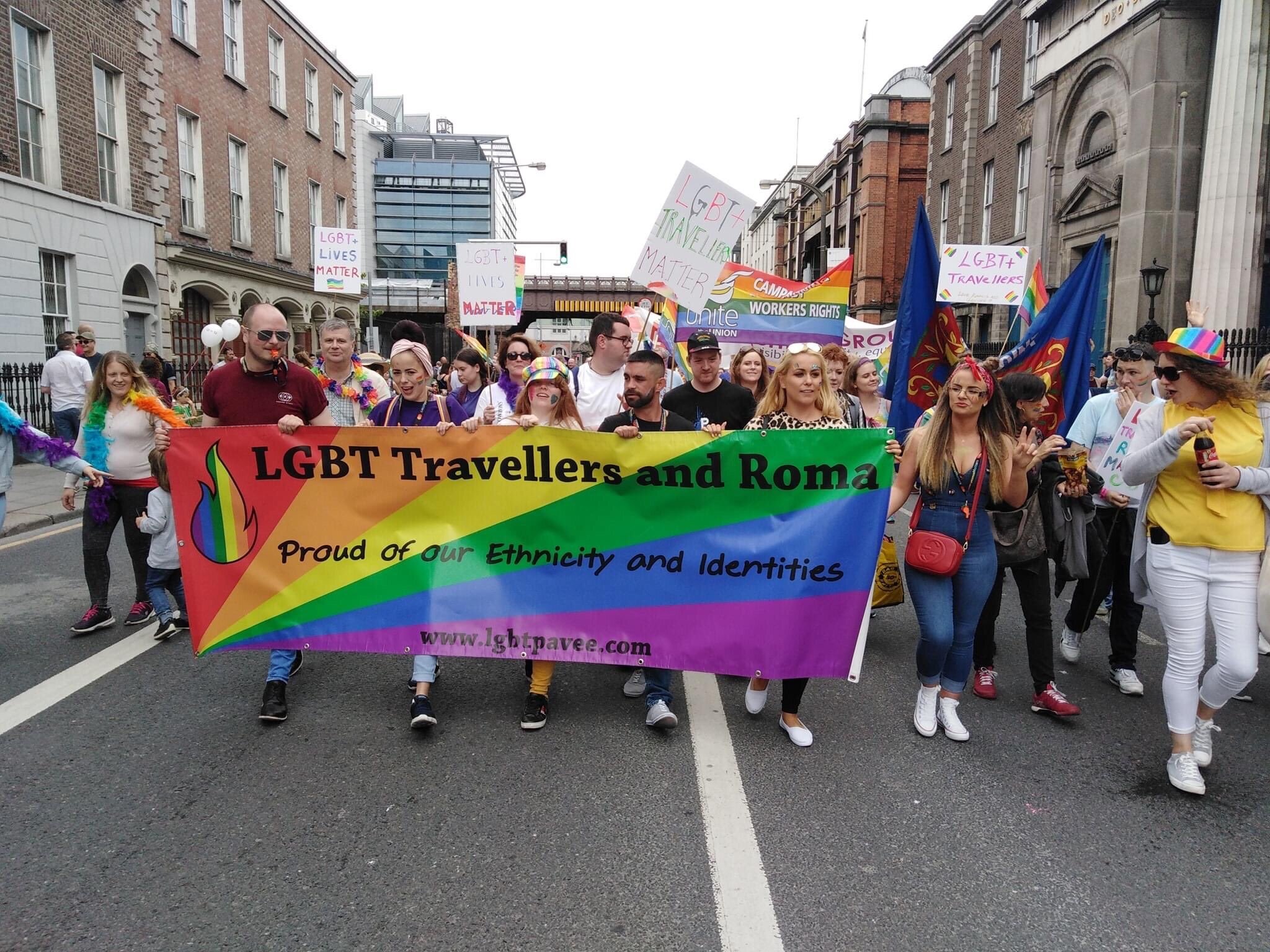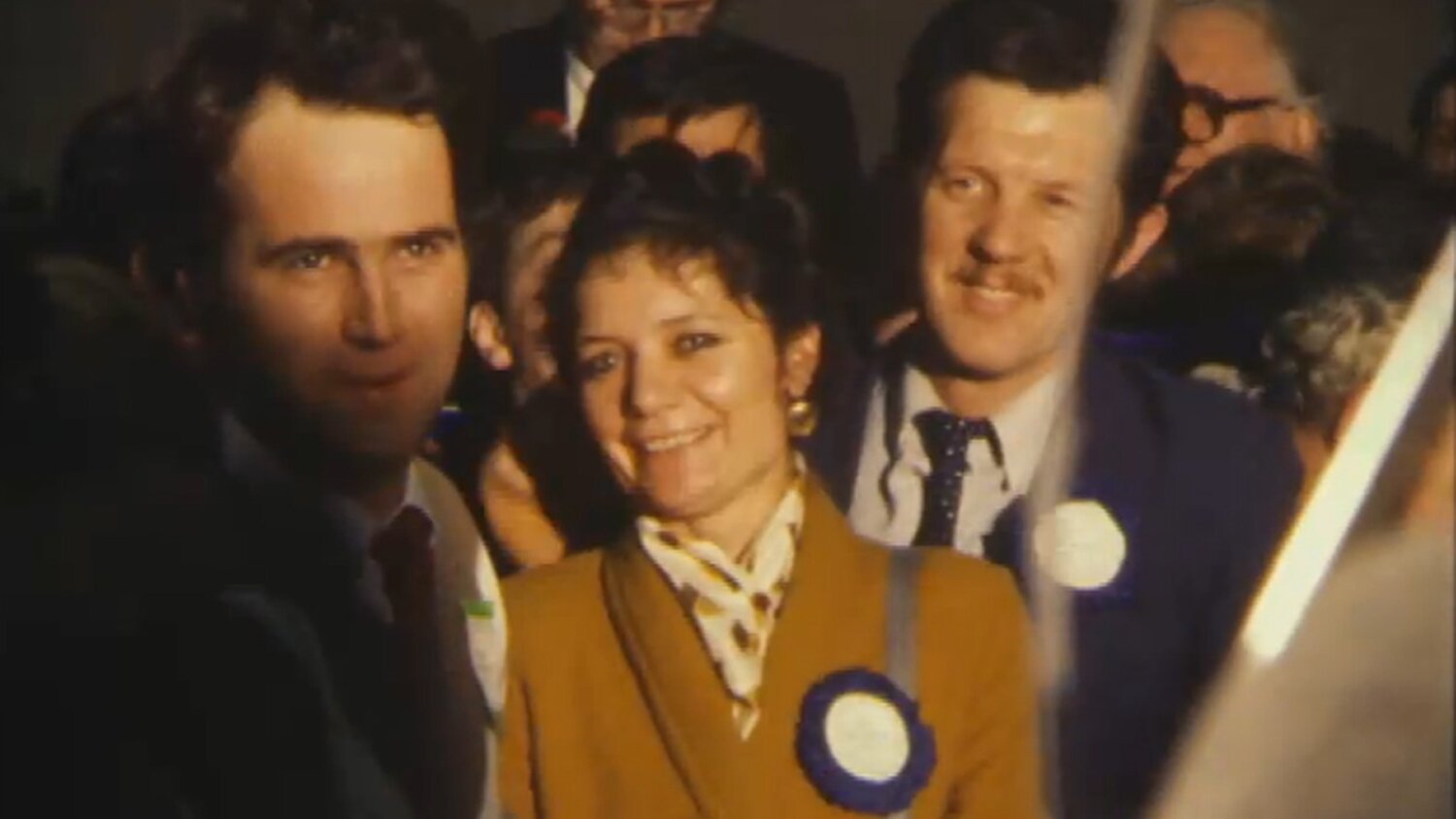Traveller Rights Activist / First Traveller elected to the Seanad
Eileen Flynn (Picture: Maxwells. Source: irishexaminer.com)
On 14 July 2020, we talked to Eileen Flynn who made history (or herstory!) when she became the first Traveller to be elected to the Seanad in June 2020. She has been an activist for many years now, speaking out on issues that affect her community, and particularly the women in her community. As she pointed out though, it took her a long time to get to where she wanted to be, and she faced many obstacles along the way in the form of societal discrimination and racism …
‘I was born and reared in a halting site. I lived in Labre Park and for me as a Traveller person, I’ve always been faced with obstacles in the form of societal discrimination directed at the Traveller community. As marginalised people it’s very difficult to reach your dreams. I was in a really bad accident which impacted my school days and I lost my mother at ten years of age. For me, as a young woman, and not only that but a young Traveller woman who was barely put together, stitched and screws in many parts of my body – I was that troubled young person in school. I was suspended eight times, but something changed for me when I was 16/17 - I wanted an education.
I went back to school and completed my LCA Leaving Cert and then did an Access course in Trinity college. I went to Ballyfermot college for two years then and absolutely loved it. I did pre-nursing and caring for people with special needs. Then I took a year out because my father was dying, but I went back when I was twenty-five as a mature student to Maynooth University where I got a BA in Community and Youth Studies, which I’m very proud of. When you’re a member of the Traveller community, that’s one thing, but when you’re a woman there’s an extra layer of societal oppression that comes with that. Today Ballyfermot is integrating much more, there’s people from many ethnic minority groups, but as a child going back over twenty years ago, it was different, you could feel that prejudice from a very young age. I remember being a child in a shop and just wondering why were people staring at me or my mam? Why were they looking at us differently?
It took me a really long time to get to where I wanted to be, I have dyslexia too and that was tough. Those challenges aren’t just there for me but for every marginalised person on the island, for people of colour, refugees, migrants and for women in those communities. It’s very tough to be a woman in these communities and be successful and by successful, I mean opportunity of success. The opportunity to go on to third level education and employment.’
How can we as a society and as individuals make sure that there is equal access and equal opportunities for everyone? In Eileen’s opinion, it’s about working with marginalised groups.
Photo via @Love1solidarity on Twitter
‘You don’t blow out someone else’s candle and think yours is going to burn any brighter – it’s about giving marginalised communities a hand up, not a handout. When we go into spaces and there’s discussions and decisions being made, we need to look around us and think ‘who is not here?’ In Ireland I believe we need Hate Crime Legislation that works. I’m going into my third week in this role and I’m already looking into it and I believe we need different voices around. It’s not going to be about one community of people, but many communities. We want equality for Traveller people, for the LGBTQI+ people, for Trans people… It’s about listening, and after you listen you can then take action.’
Hate Crime legislation is so important to Eileen (and to many) because up until now, people have had to rely on the Prohibition of Incitement to Hatred Act 1989, and only a small number of people have ever been convicted under it because of ‘the requirement to prove beyond reasonable doubt that there was an intent to incite hatred.’ In addition, as Dr Patrick McDonagh wrote for GCN, ‘transgender and intersex individuals, for example, are not covered under existing legislation, yet Ireland’s transgender community are one cohort who are most in need of protection in this regard.’
As well as the Hate Crime Legislation, what does Eileen want to accomplish in her new role?
‘I’d love to see the Traveller Culture and Education Bill that Collette Kelleher has already started passed [this would introduce Traveller culture and history to the school curriculum]. I’d love to do some work around Traveller accommodation as well. The Committee on Key Issues affecting the Traveller Community was set up last year for six months but I’d love to see it set up again so that TDs and senators can sit together and have discussions on the needs of the Traveller community, and what we can do better. I’d love to work with people of colour, and other ethnic minority groups. I can’t be the voice of black people, or of Muslim people – I can’t go in and say that I’m the marginalised voice for all these people because I haven’t lived that life, but what I can do is bring these people around the table and work along with the NGOs and individuals that want to come around the table. What can we do better, how do we do it, and how do we do it together? I’m a community development worker and being a senator, I’m going to do it through the eyes of community development work, and every choice that I make will be through the eyes of human rights and equality.’
Have you any words of advice or encouragement for younger people who may be reading this?
‘For me, I was the young person who came from Labre Park and the young Traveller woman that even some members of my family never thought would be anything because of the lack of employment and education opportunities. There was no hope in me, and I began to have no hope in myself until I was about 25 years of age. I always had a place in my heart to be a changemaker for my own community but also for women in my community. Travellers have always had an interest in politics, take Nan Joyce for example, who was the first Traveller candidate in an Irish general election in 1982. She has been an inspiration for Travellers in Ireland, I always used to read about Nan Joyce and think hopefully someday I could make a change like that.
Nan Joyce, via. RTÉ Archives
I have a little girl and if I die tomorrow morning she can look back and say, ‘my mammy did that.’ Bernadette Devlin used to say, ‘we’re born in an unjust world, but we’re not meant to grow up in it.’ So, I hope that when my child is a young girl, she won’t have to grow up in the world that I did.
I would just say to have hope and keep going. My lecturer used to say it’s like a big wall, but you just keep hammering away and take down one pebble at a time. You keep going.’
Thank you to Eileen Flynn for taking the time to speak to us, and to John Campbell who helped to set up the interview.
Sources and further reading:
O’Brien and O’Halloran, Carl, and Marie, ‘Traveller history to be ‘obligatory’ in schools if new Bill passed,’ The Irish Times, 17 Oct. 2019, accessed online at: https://www.irishtimes.com/news/education/traveller-history-to-be-obligatory-in-schools-if-new-bill-passed-1.4053016 [accessed 15 July 2020].
‘Why Hate Crime Legislation?’ accessed online at: https://inar.ie/hate-crime-legislation/ [accessed 14 July 2020].
McDonagh, Patrick, ‘Hate Crime legislation in Ireland - The journey so far and what happens next,’ GCN (Feb. 2020), accessed online at: https://gcn.ie/hate-crime-legislation-ireland-what-happens-next/ [accessed 15 July 2020].
‘Traveller Culture and History in Education Bill 2018: Report and Final Stages,’ Seanad Éireann debate - Wednesday, 16 Oct 2019, Vol. 267 No. 12, accessed online at: https://www.oireachtas.ie/en/debates/debate/seanad/2019-10-16/13/ [accessed 15 July 2020].


